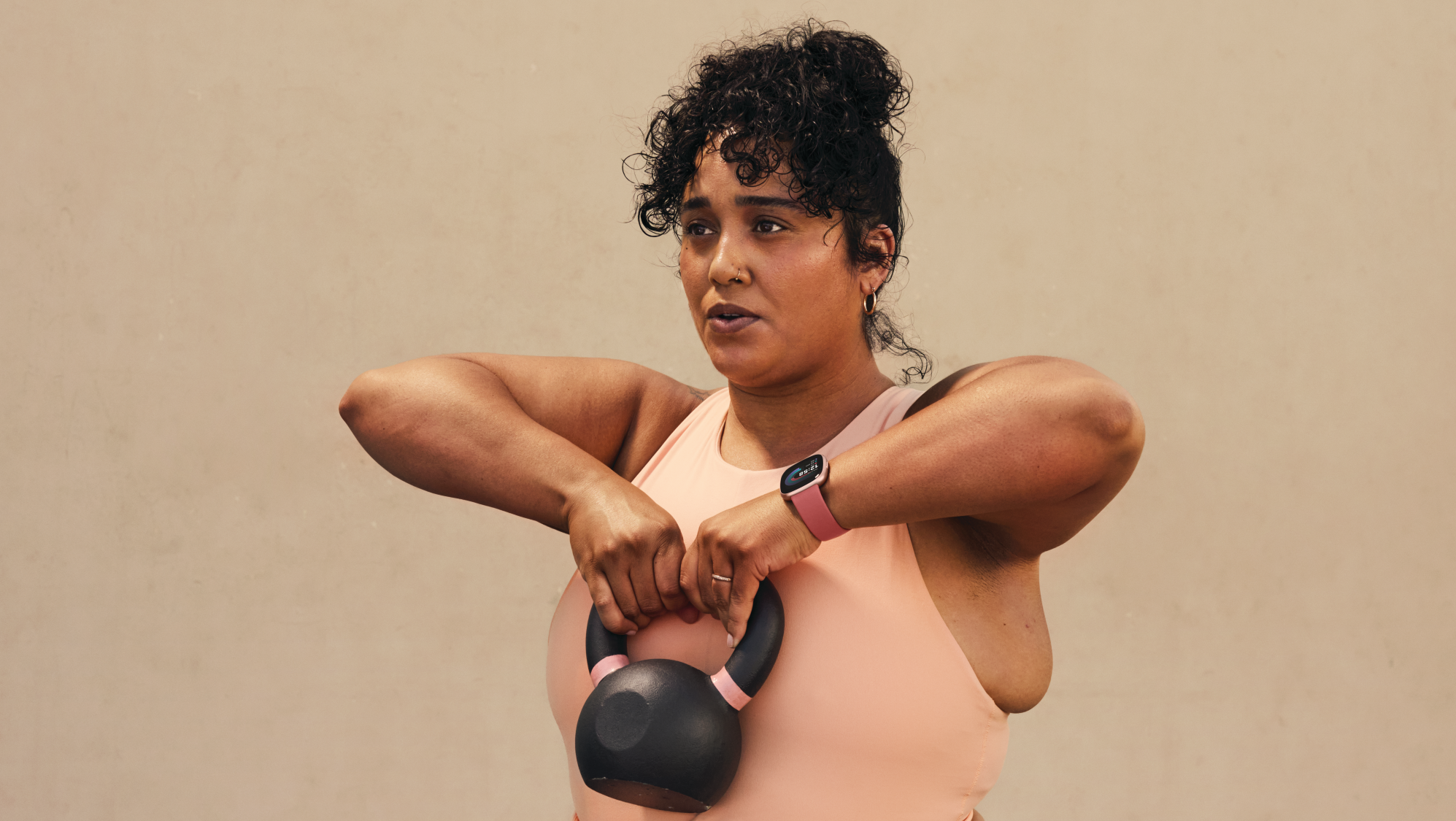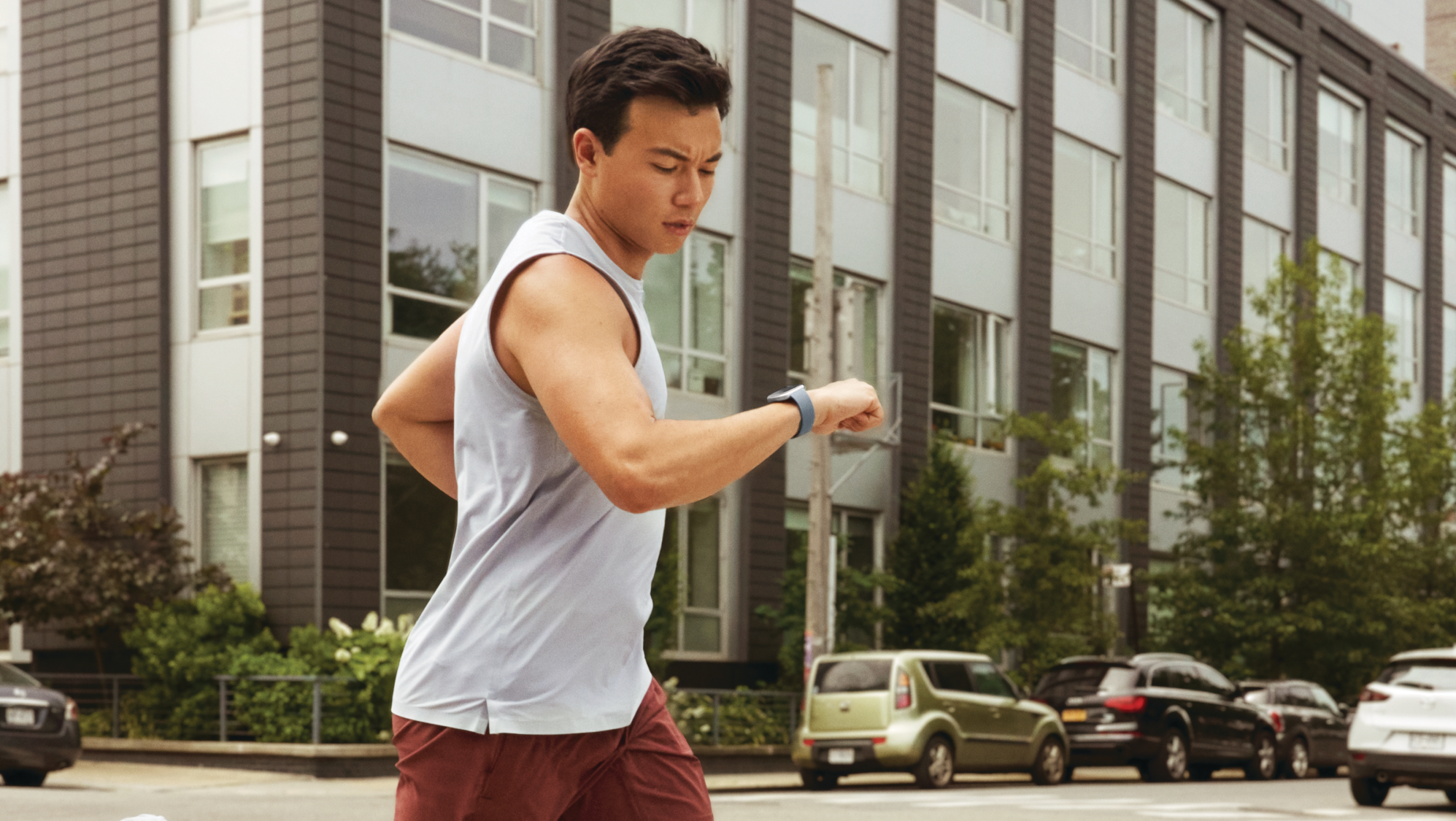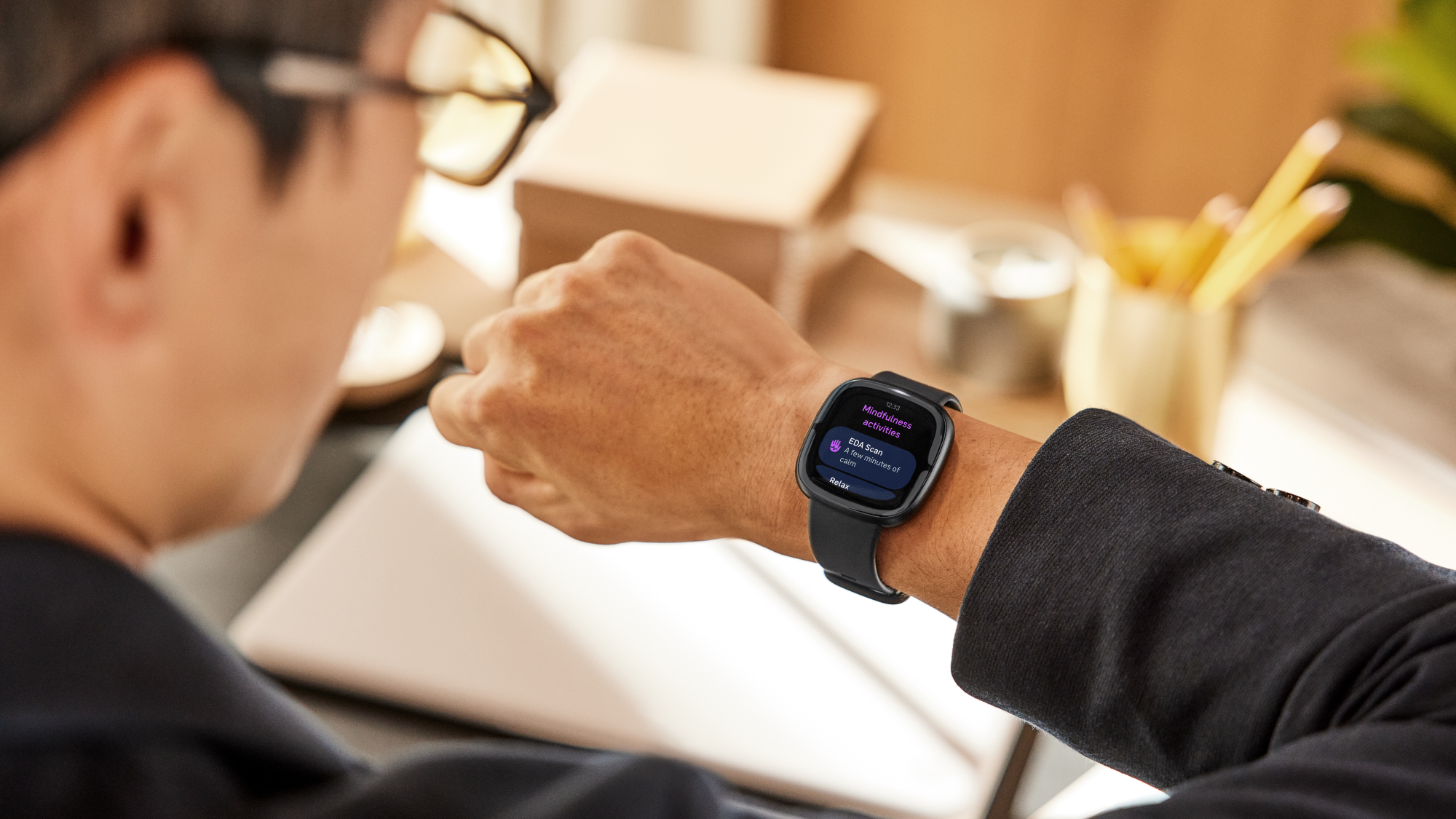Apple Watch can't compete with this Fitbit feature — is it a better health tracker?
Fitbit Versa 4 has a crucial edge as a health and fitness tracker

Sign up to receive The Snapshot, a free special dispatch from Laptop Mag, in your inbox.
You are now subscribed
Your newsletter sign-up was successful
This week Fitbit announced the latest additions to its fitness-focused smartwatch lineup with the Fitbit Versa 4 and Fitbit Sense 2. While Apple Watch and Galaxy Watch outsell the once dominant player in the wearables market and unquestionably offer more smartwatch features, there’s one key advantage for Fitbit that makes it still the best smartwatch for health and fitness tracking.
If you’ve researched any of these watches you may already know the answer, it’s simply battery life. The Versa 4 and Sense 2 both offer over six days of battery life according to Fitbit and while we have yet to review them, last year’s Fitbit Sense hit that mark so I’m willing to give them the benefit of the doubt. By comparison, the Apple Watch Series 7 and Galaxy Watch 5 are just able to make it into a second day.
Feeling a little run down?
Other than the annoyance of having to charge something daily, we already do that with our phones after all, why is this such a significant advantage that you should consider the Versa 4 or Sense 2 over an Apple Watch or Galaxy Watch? These companies all stress that health and fitness tracking is the primary purpose of their respective smartwatches and to serve that function the watch needs to stay on your wrist. There’s no question that you are more likely to end up with a day, weekend or night with a dead Apple Watch or Galaxy Watch on your wrist as you forgot to charge it or forgot to bring your charger on a weekend getaway.
Leaving aside how ridiculous it feels to lift your wrist to check the time or see if you’ve missed any notifications and see only your reflection staring back at you in the blank display, there’s the lost data, whether that be steps or sleep tracking. I appreciate that there is a backlash to the notion that “If you didn’t track it did it even happen?” However, if you are seriously tracking your health or fitness then there is some truth to that. Taking a guess at your calorie burn for a day or a specific activity is not going to be as accurate, neither will your estimation as to how you slept, and if you are going to tell me you are certain what your heart rate looked over the course of a day then you are either Daredevil or you are lying.

That last one is of particular note, Apple loves talking about its heart rate monitor and its ability to detect instances of an abnormally high or low heart rate or the more recent addition of atrial fibrillation (A-fib) detection via EKG. Again Versa 4 covers all of this same ground with the added benefit of being able to monitor for signs of A-fib while you sleep. These are all measurements that benefit from monitoring you as regularly as possible and the Versa 4 is better suited to that task.
Apple and Samsung both turn to the same solution for extending the battery life on their smartwatches with battery saver modes that essentially shut everything down in order to keep your watch alive for timekeeping and possibly step tracking, but at that point, you’ve given up all of the supposed advantages of those wearables over the Fitbit.
Smarter than the average fitness tracker
So what’s the other side of the coin? What are you giving up by going with the Fitbit Versa 4 or Sense 2 over the Apple Watch or Galaxy Watch? Not as much as you might think.
Sign up to receive The Snapshot, a free special dispatch from Laptop Mag, in your inbox.
The latest update to the Google-owned company’s smartwatches brings with it support for Google Maps for directions and Google Wallet for easy touchless payments. Fitbit also has a mic and speaker to allow for calling over Bluetooth and using voice assistants like Google Assistant or Alexa. Notifications are solid as well and you can do messaging, although particularly for iOS users it is far more limited than what is possible on Apple Watch.
If you love the Photos app on your Apple Watch or the home automation features, then you are going to be disappointed by the Versa 4, but for most users that are looking for health and fitness tracking with a little notification triage, the Fitbit watches are smart enough.

Outlook
With the Apple Watch Series 8 almost here I can’t wait to fully test Fitbit’s latest against whatever Apple unveils. In my Apple Watch 7 vs. Fitbit Sense face-off last year the win for Apple was tipped by the design, which was largely a result of the capacitive button on the side of the Sense occasionally failing to respond. It seems Fitbit learned its lesson and a real button is back.
While there are a number of rumored changes for the Apple Watch, the battery life is one I just don’t see them cracking. The rugged Series 8 Pro that some indicate is coming may extend battery life with a larger battery and chassis, but that will rule it out for anyone that prefers a smaller watch and also I suspect will still come up days shy of the Versa 4 or Sense 2. Much the same can be said for Galaxy Watch 5 Pro which pushes to 2-3 days of battery life versus just over a day for Galaxy Watch 5.
All of this isn’t to convince you that the Apple Watch and Galaxy Watch aren’t excellent smartwatches, they are, but if you are buying a smartwatch with health and fitness as your primary goal it is worth considering whether needing to charge just once a week would make you more likely to use it reliably. The best diet is the one you will stick to and the best health and fitness tracker is the one that stays charged on your wrist.
Sean Riley has been covering tech professionally for over a decade now. Most of that time was as a freelancer covering varied topics including phones, wearables, tablets, smart home devices, laptops, AR, VR, mobile payments, fintech, and more. Sean is the resident mobile expert at Laptop Mag, specializing in phones and wearables, you'll find plenty of news, reviews, how-to, and opinion pieces on these subjects from him here. But Laptop Mag has also proven a perfect fit for that broad range of interests with reviews and news on the latest laptops, VR games, and computer accessories along with coverage on everything from NFTs to cybersecurity and more.

